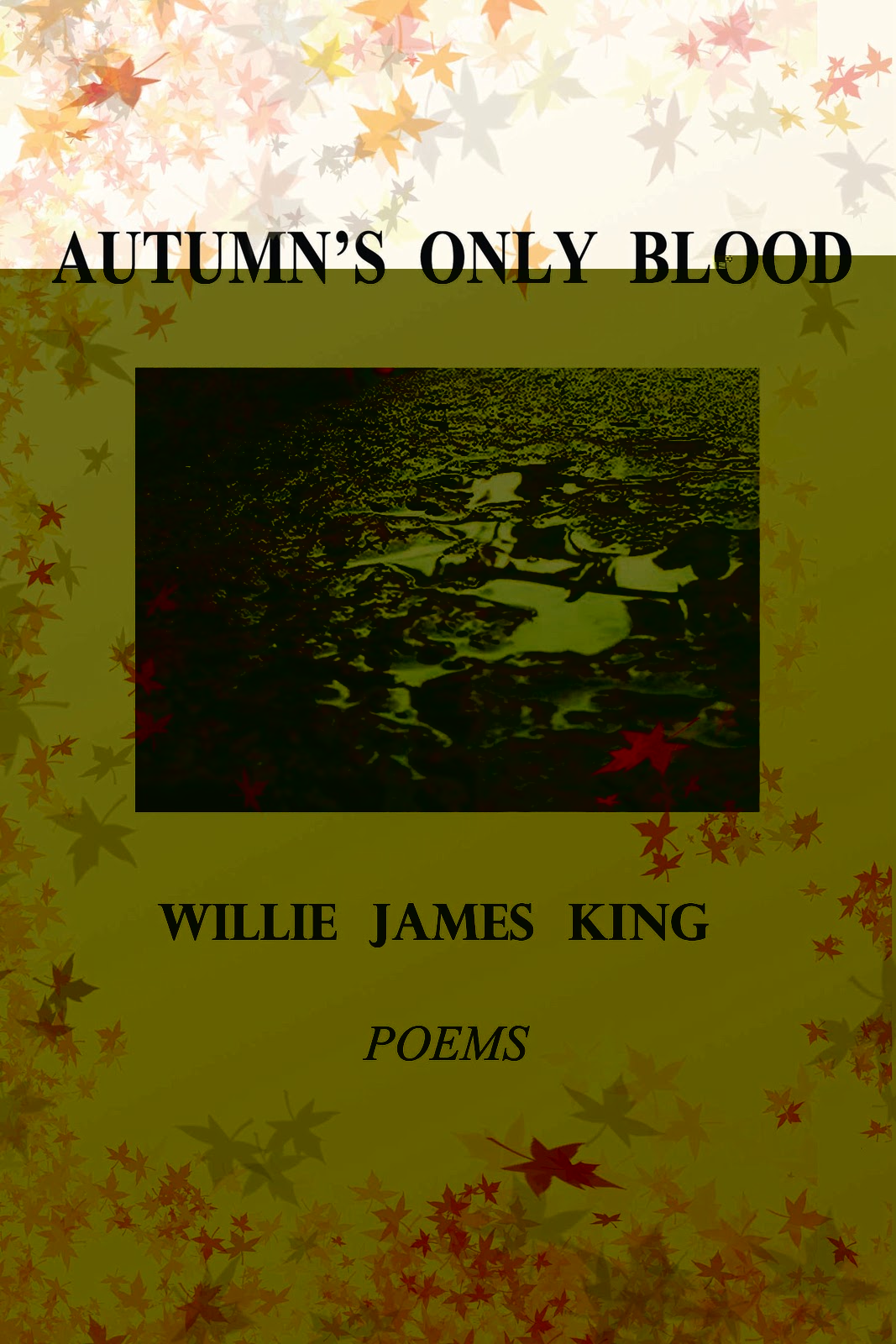
Autumn's Only Blood
by Willie James King
Poetry
Tebot Bach
$ 16.00, 74 pages
ISBN: 978-1-893670-8-46
Willie James King, a widely-published African-American poet from Montgomery, Alabama, clearly writes in the long poetic tradition of western civilization, both thematically and metrically. The poems in his second collection published by Tebot Bach, Autumn’s Only Blood, are elegiac and lyrical in tone. Almost a dozen of the nearly fifty in this new collection are sonnets.
Dedicated to Troy Davis, an African-American man who was executed by the state of Georgia in September, 2011, for killing a police officer in Savannah in 1991, the collection begins and ends in autumn, in elegy. Davis was convicted on sketchy evidence and maintained his innocence for over twenty years. The book’s title comes from the dedication:
the spider lilies are
springing up all over
now, blooming, as if
they ought to be
this autumn’s only blood.
The spider lily, which blooms abundantly in the American South in autumn is a transplant from Southeast Asia, a flower full of the potent symbolism of tragedy.
The collection’s penultimate poem, “Even When the Earth Seems Fallow,” is a sonnet likewise set in autumn that echoes Keats’ famous ode in celebrating the fecundity of the dying season, the last rich burst of Indian summer, and promises an eventual rebirth.
Thus, as other reviewers have noted, an overall attitude of compassion truly marks King’s poetry, from the first page to the last.
Willie James King knows that poetry is more than morality or calls to action.
Autumn’s Only Blood is composed of three sections, the first of which, “An Undeveloped Pasture,” dwells on the theme of justice — and injustice. Without pointing fingers, a handful of poems address the plight of Haiti after the 2010 earthquake, focusing on individual anguish, determination, and overwhelming sorrow. Always located in specific situations, the poems in this section are concrete, not an abstract depiction of social and cosmic unfairness or resistance. Poems focus on Sierra Leone (“Dear Roland”), Buddhist monks in Vietnam setting themselves on fire (“Green Life”) as well as on the Haitians.
An epigraph from Martin Luther King Jr. opens this section, and a number of poems are located in the Civil Rights movement of the 1960’s. There is even an elegy for Michael Jackson (“This Is Grief”) that refers to Dr. King.
But Willie James King knows that poetry is more than morality or calls to action, and in part two, “To Fill Up an Empty Page,” which deals with poetry itself, its creation and purpose, he notes in the poem with the same title, “You confused being a poet/with being a preacher,” chiding himself for the occasional lapse into lecturing. He further notes that in writing,
you only save your-
self, maybe one, or more
onlookers, if you are lucky.
Write! As if you are the last
human left in this broken
world, a world that you
couldn’t allow another to
further wreck, nor to fix.
The poems are all rich, specific reflections of nature.
Time and again, the poems in this section speculate about the writing process, where it comes from (“In Itself, A Poem,” “The Restless Heart”), when poetry comes (“Keeping the Owl’s Hours,” “Insomnia”), and finally its effects (“Then I Am Wowed”). These are not instructions or guidelines for would-be poets — King is not “preaching” — but the reflections of an artist on the mysteries of his craft and calling. “I Too Would Write,” with its echo of Langston Hughes’ “I, Too, Sing America” in the title, is a sort of funny/macabre sonnet about writing and celebrity, writing as an endeavor in fame and fortune, tempered with a thematic edge of “justice.”
The final section of Autumn’s Only Blood, “Steadying the Plow,” may be thought to exemplify what King is getting at in section two. The poems are all rich, specific reflections of nature. The three sections thus work as a kind of dialectic, announcing each new one — thesis, antithesis, synthesis. The title of this third section comes from the sonnet, “Without Weeping,” in which the speaker contemplates a cow licking the afterbirth from her newborn calf.
Can compassion be the word for a cow
who seems to love the slimy afterbirth
she is licking from her calf’s weak body?
Perhaps it could be. I steady the plow;
it sinks deeper as I study the worth
of a child comforted in its crying...
Other poems in thus section similarly regard animals in nature with a wise compassion — “Our Father’s Field,” “The Birds,” “To Let a Cockroach Go,” “Geese,” to cite several.
Poetry is “both/and,” not “either/pr.” Willie James King’s poems about justice are no less “poetic” than his nature poetry or his introspective verse. They all add up to a complete expression by one of our truly sensitive and compassionate poets.

